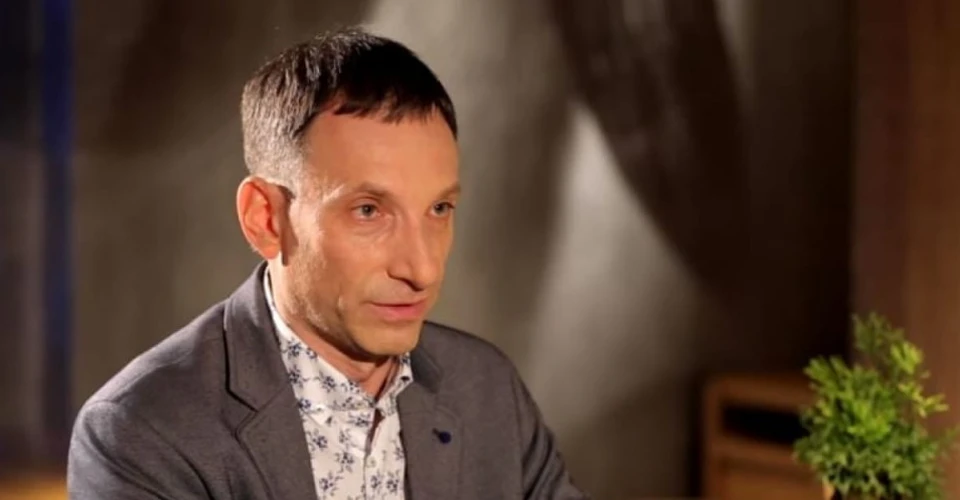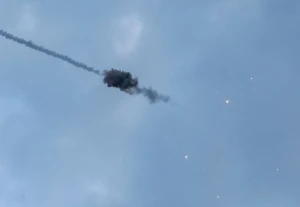
Trump sticks to his rhetoric on Ukraine. Vitaly Portnykov's column
Former U.S. President Donald Trump still insists that the only way to end the war between Russia and Ukraine is through his own negotiations with Putin. According to Trump, Ukraine's fate can be decided without Ukraine's input
In a recent interview with the flamboyant billionaire Elon Musk, Trump, who is also the Republican candidate for the presidency, once again made it clear that he hasn't budged an inch on his views regarding the Russian-Ukrainian war. Trump took a swipe at the current President, Joe Biden, accusing him of provoking the war by suggesting that Ukraine could join NATO. But let's not forget — Ukraine's potential NATO membership was never off the table, even when Trump was in office.
Biden only reaffirmed what everyone already knew. Believing that Putin attacked Ukraine solely because of its desire to join NATO is absurd. It's evident that the Russian president used Ukraine's Euro-Atlantic ambitions as a pretext to dismantle a neighboring country and annex its land.
Naturally, the question comes up again — how exactly does Trump intend to negotiate with Putin to end the war? Does he not see Ukraine’s neutrality and demilitarization as essential for Putin to halt his aggression?
Trump can draft peace plans through force, like former Secretary of State Mike Pompeo did, and Ukrainian President Volodymyr Zelenskyy can hold talks with Trump, but it’s clear these discussions and plans don’t alter Trump’s vision for how the war between Russia and Ukraine should conclude. The former U.S. president is convinced that the key to ending this war lies in his direct conversation with Russian leader Vladimir Putin, whom Trump emphasized, in a chat with Musk — who is known for his thinly veiled admiration for the Russian dictator — he got along with well before.
The fact that Trump and Putin, during Trump’s presidency, didn’t manage to agree on anything of substance doesn’t seem to trouble the former U.S. president. He’s confident that if he returns to office, he’ll reach a deal with Putin on acceptable terms.
But the crucial question is — acceptable to whom? Trump? Putin? Or Ukraine?
From Trump’s conversation with Musk, the conclusion is clear — Ukraine’s fate doesn’t really concern the former U.S. president.
Zelenskyy hasn’t swayed him on anything, but Trump seems nearly convinced that Ukraine won’t be able to continue fighting Russia. He stated that Ukraine is running out of men for this war and suggested that they have to rely on either very young or very old servicemen.
Where is Trump getting this information? That’s an excellent question, considering there are no extremely young soldiers in Ukraine’s defense forces. But it’s evident that Trump works with information that suits his narrative.
The former American president, much like his supporters, is notorious for his skewed worldview — one that is detached from reality but aligned with his perception of it. This very disconnect might explain Donald Trump's continued political appeal among his base, despite the Capitol insurrection and the ongoing legal charges in U.S. courts.
Several straightforward conclusions emerge from this interview.
First. The former president's stance on ending the war in Ukraine remains unchanged. Trump believes that the key to peace lies in his personal negotiations with Russian President Vladimir Putin, sidelining Ukraine from decisions about its own future. Trump's worldview revolves around deals struck between the leaders of major powers, with smaller nations expected to simply accept the outcomes.
Second. Any plans proposed to Trump fall flat in the face of his convictions, as he is known for dismissing his advisers' advice whenever it contradicts his personal vision. Thus, it’s futile to hope that any peace plan favorable to Ukraine, even one crafted by leading Republicans, will influence Trump’s position.
Republicans are powerless to sway a former president who has effectively taken over this historic party and imposed his own agenda, which starkly deviates from the traditional values of the GOP. Under Trump’s influence, the American Republicans have shifted from right-wing to far-right politics.
This shift is evident in the actions of the Republican Party and the views of Trump, as well as those of his vice president, JD Vance, who is known for his outspoken anti-Ukrainian rhetoric. Unlike Trump, Vance flaunts these views, making anti-Ukrainian sentiments a part of his campaign.
Third. Trump is convinced Ukraine can't sustain the war with Russia. He believes any deal with Putin, even one aligned with both his and the Russian President’s interests, will somehow "save" Ukraine. Regardless of the outcome, Trump will spin any negotiation with Putin as a major foreign policy win, even if it's far from the truth. Remember how Trump framed his political debacle with North Korea's Kim Jong Un, failing to secure any agreements or halt Kim’s nuclear ambitions.
Fourth. Trump winning the U.S. presidency could be a serious problem for Ukraine in terms of U.S. aid, America’s stance on the Russia-Ukraine war, and its role within NATO and relationships with European countries.
And the fifth takeaway. We can only hope the U.S. presidential election ends in Trump's defeat and his permanent exit from the political scene. But knowing Trump’s resilience, his charisma, and his relentless pursuit of power, it would be naive to assume he's bound to lose. The former president has a real shot at winning, and if he does, the world may face one of its biggest crises yet. Both Ukraine and the Russia-Ukraine war will undoubtedly be caught in the middle of that crisis.
About the author. Vitaly Portnykov, journalist, Shevchenko National Prize laureate
The editors do not always share the opinions expressed by the blog authors.
- News













































